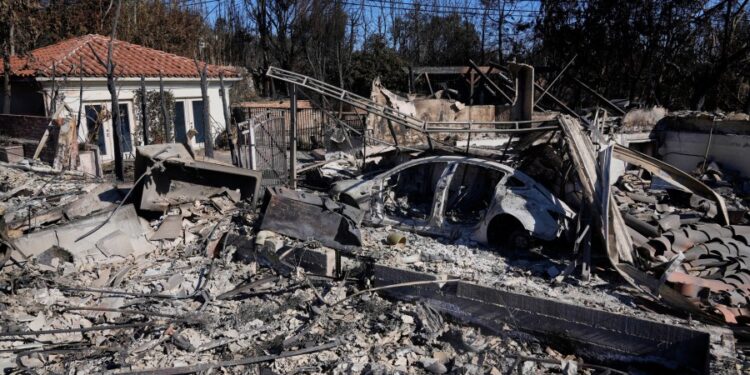
LOS ANGELES (KTLA) – State Farm General, California’s largest insurer, has asked the California Department of Insurance to approve a rate hike averaging 22% Monday, citing a “dire” financial situation after the deadly and destructive L.A. County wildfires.
The insurer, State Farm’s California subsidiary, shared that it has already received over 8,700 claims, has paid out over $1 billion to customers, and expects to pay out “significantly more,” with the fires being the costliest natural disasters in its history.”
State Farm General is asking the state’s Department of Insurance to “immediately approve interim rate increases to help avert a dire situation for the more than 2.8 million policies” issued by the company.
“Insurance will cost more for customers in California going forward because the risk is greater in California. Immediate emergency interim approval of additional rates is essential to align cost and risk more closely and enable State Farm General to rebuild capital. We must appropriately match price to risk. That is foundational to how insurance works,” a statement from the company said.
The new rate hike request comes after the company asked to raise rates 30% for homeowners, 36% for condo owners and 52% for renters, on average, last June. That request is still pending.
Ricardo Lara, California’s insurance commissioner, told the Los Angeles Times that the company’s June rate filing “raises serious questions about its financial condition.”
The company has also been accused of trying to boost its parent company’s profits while claiming financial distress.
In January, State Farm said it would offer renewals to residential policyholders affected by the deadly wildfires across Los Angeles County. The company previously had plans to drop many of these policies.
The decision applies to policies held by homeowners, owners of rental dwellings, and residential community associations, including condominium associations.
Since 2023, State Farm hasn’t accepted new insurance applications for all business and personal property in California. Since then, other companies have announced similar moves.







